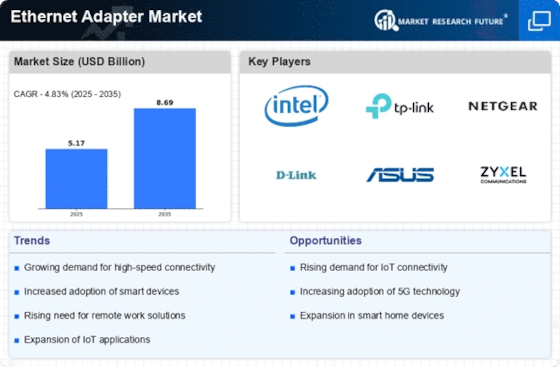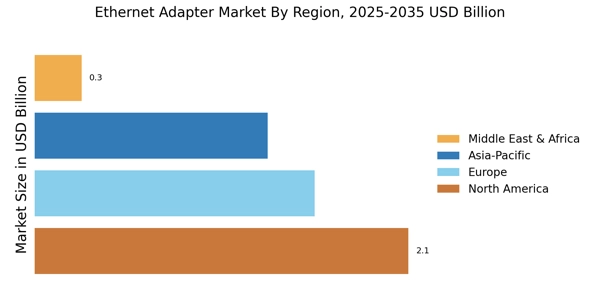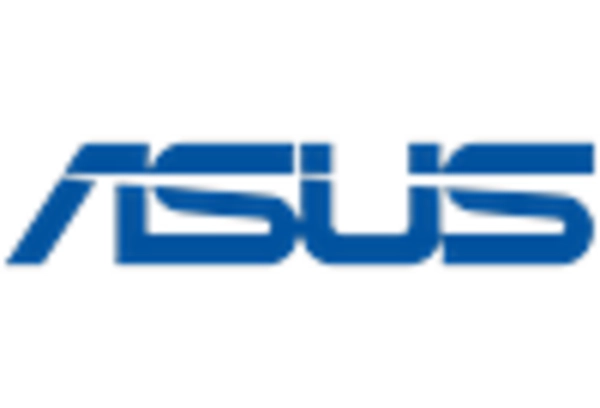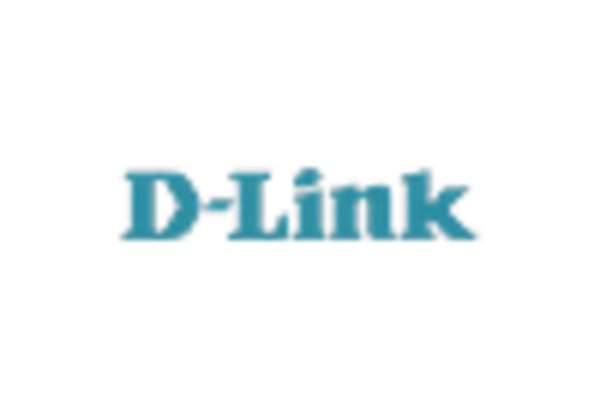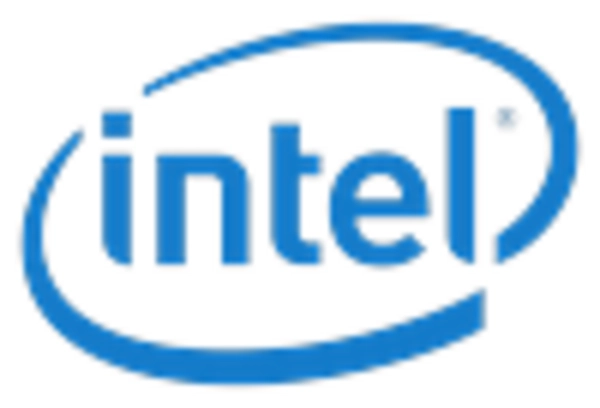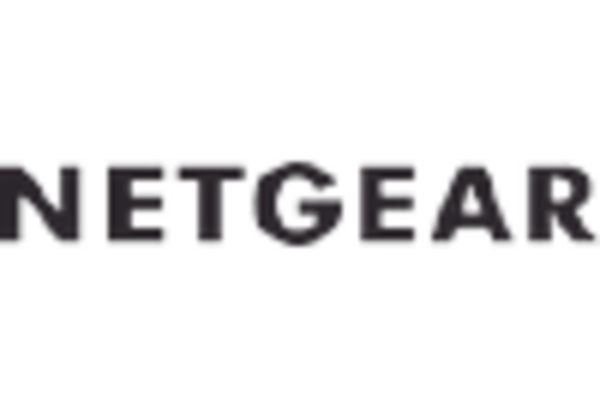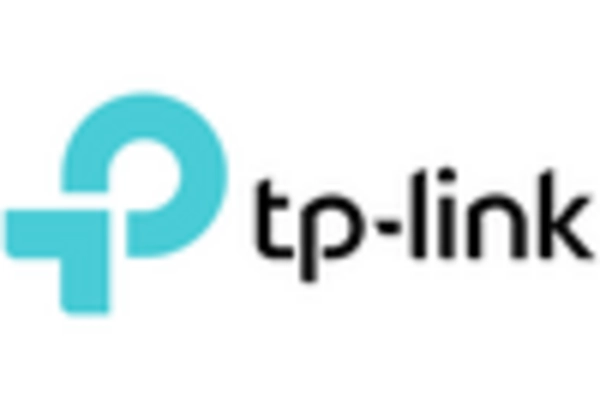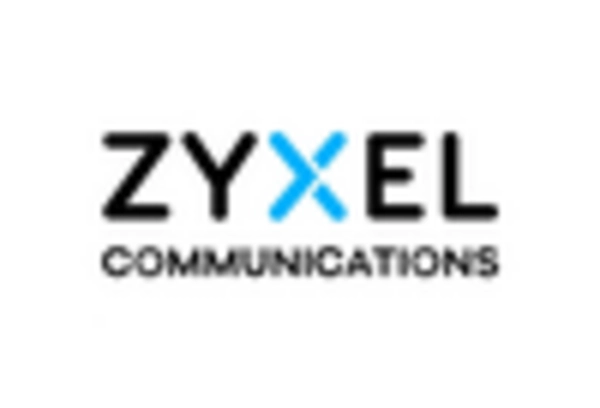Increasing Internet Penetration
The Ethernet Adapter Market is experiencing a notable surge due to the increasing penetration of the internet across various regions. As more households and businesses gain access to high-speed internet, the demand for reliable connectivity solutions, such as Ethernet adapters, is expected to rise. According to recent data, the number of internet users has reached approximately 5 billion, indicating a significant market potential for Ethernet adapters. This trend is further fueled by the growing reliance on digital services, remote work, and online education, which necessitate stable and fast internet connections. Consequently, manufacturers in the Ethernet Adapter Market are likely to innovate and expand their product offerings to cater to this burgeoning demand.
Rising Adoption of Smart Home Devices
The Ethernet Adapter Market is significantly influenced by the rising adoption of smart home devices. As consumers increasingly invest in smart technologies, such as smart speakers, security systems, and home automation products, the need for reliable and high-speed connectivity becomes paramount. Ethernet adapters play a crucial role in ensuring stable connections for these devices, which often require consistent internet access for optimal performance. Market data suggests that the smart home market is projected to grow substantially, further driving the demand for Ethernet adapters. This trend indicates that manufacturers in the Ethernet Adapter Market must focus on developing products that cater to the specific needs of smart home users.
Advancements in Networking Technologies
The Ethernet Adapter Market is poised for growth as advancements in networking technologies continue to evolve. Innovations such as 5G technology and Wi-Fi 6 are enhancing the performance and speed of internet connections, thereby increasing the need for compatible Ethernet adapters. These advancements enable faster data transfer rates and improved network efficiency, which are critical for both residential and commercial users. As organizations seek to upgrade their infrastructure to leverage these technologies, the demand for high-quality Ethernet adapters is expected to rise. Furthermore, the integration of Ethernet adapters with emerging technologies, such as IoT devices, is likely to create new opportunities within the Ethernet Adapter Market.
Increased Focus on Remote Work Solutions
The Ethernet Adapter Market is experiencing growth due to the increased focus on remote work solutions. As organizations adapt to flexible work arrangements, the demand for reliable networking equipment has surged. Ethernet adapters are essential for ensuring stable connections in home office setups, where high-speed internet access is crucial for productivity. Market analysis indicates that the remote work trend is likely to persist, leading to sustained demand for Ethernet adapters. Companies are investing in technology to support their remote workforce, which includes providing employees with the necessary tools for effective communication and collaboration. This shift presents a significant opportunity for growth within the Ethernet Adapter Market.
Growing Demand for Gaming and Streaming Services
The Ethernet Adapter Market is benefiting from the growing demand for gaming and streaming services. As more individuals engage in online gaming and subscribe to streaming platforms, the need for high-speed and stable internet connections has become increasingly critical. Ethernet adapters provide a reliable solution for gamers and streamers who require low latency and uninterrupted connectivity. Recent statistics indicate that the gaming industry is expected to reach a valuation of over 200 billion, which suggests a substantial market opportunity for Ethernet adapters. This trend is likely to encourage manufacturers to enhance their product offerings, focusing on features that cater specifically to the gaming and streaming communities within the Ethernet Adapter Market.

